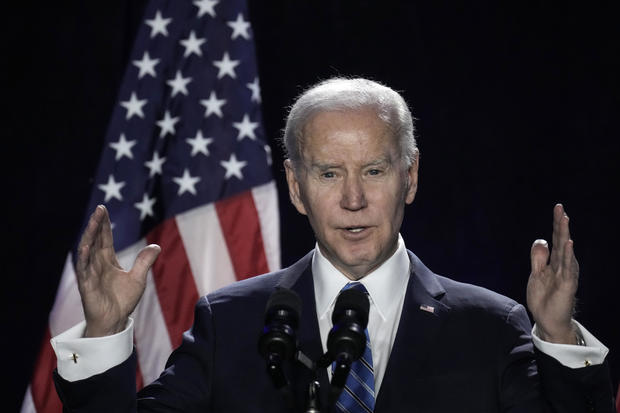White House pushing Congress to pass funding to combat pandemic-related fraud
President Joe Biden’s administration is asking Congress to agree to pay more than $1.6 billion to help clean up the mess of fraud against the massive government coronavirus pandemic relief programs.
In a strategy announced Thursday, the administration called for money and more time to prosecute cases, to put into place new ways to prevent identity theft and to help people whose identities were stolen.
On a call with reporters, White House American Rescue Plan coordinator Gene Sperling had hope that Congress, including the GOP-controlled House that is often hostile to the Democratic administration, would see the spending as an investment.
“It’s just so clear and the evidence is so strong that a dollar smartly spent here will return to the taxpayers, or save, at least $10,” Sperling said, pointing to recoveries that have already happened. The U.S. Secret Service last year got back $286 million sent out in fraudulently obtained loans through the Small Business Administration.
Drew Angerer / Getty Images
Sperling said the request would be part of the budget proposal Mr. Biden is scheduled to make March 9 — but the bulk of it will be separate from the one-year appropriation request. Details would need to be ironed out with Congress, but Sperling said he believes the proposal will have bipartisan support.
Soon after the swaths of the U.S. economy were shut down after the coronavirus hit the country in 2020, Congress began authorizing massive relief measures to help governments, businesses and individuals who were impacted. Relief measures — some signed by Mr. Biden and some by his predecessor, Donald Trump — totaled nearly $6 trillion. That’s more than the government spent annually before the pandemic.
Money went to boost unemployment insurance programs, help those in the gig economy who lost work, cover government costs and keep businesses afloat.
“On the whole, those programs did enormous good,” Sperling said. “There were also cases where guardrails were unnecessarily lowered, which led to unnecessary and massive fraud.”
A congressional committee found that financial technology companies did not properly screen applicants for the giant Paycheck Protection Program. Fraudulent claims for unemployment benefits overwhelmed state computer systems, which sometimes had trouble identifying the fake ones while slowing down many legitimate filings. The Labor Department estimated there was $164 billion in improper unemployment fraud payments alone — much of it to fraudsters.
Many of the scams relied on fake or stolen personal information.
“Much of the of course much of the challenge was just the historic nature of the pandemic, our failure to invest in many of the key capacity parts of government such as the bid the state unemployment programs,” Sperling said.
Mr. Biden’s plans aim to deal with prosecutions and prevention. He’s asking for $600 million for prosecution, including funds to create at least 10 new Justice Department strike forces in addition to the three that already exist to go after criminal syndicates and other fraudsters. He’s also calling on increasing the statute of limitations for such crimes to 10 years from the current five, giving more time to investigate and prosecute cases.
And he’s calling for policy changes to make sure that the Labor Department Inspector General’s Office has ongoing access to data showing where the same identity was used to apply for benefits in multiple states. That office and other inspector general offices would share at least $300 million to hire investigators.
Mr. Biden is also planning eventually to issue an executive order directing federal agencies on how to take action on identity fraud, including modernizing government systems to prevent identity theft. The timing on the executive order is unclear.
A portion of the money would go to improve a Federal Trade Commission website, IdentityTheft.gov, a place for people to report identity theft and get help.
The proposal also notes that $1.6 billion from the American Rescue Plan — the last of the big relief measures, adopted in 2021 — will be made available by June to help states improve their anti-identity theft measures.
For more latest Education News Click Here


